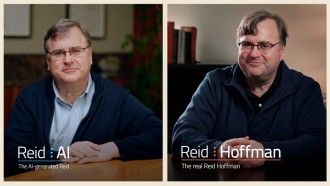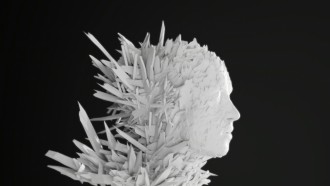Increasing usage of generative artificial intelligence, such as OpenAI's ChatGPT, has raised questions about the validity of emotionally charged texts like wedding vows, apologies, and eulogies.
Recently, 31-year-old Bloomberg data management professional Tori McCun used ChatGPT to write a eulogy for her father, who passed away, as reported by ABC News. Although McCun's sisters received a good reaction, they voiced discomfort with using a non-human creature during such a private time, pointing to a larger societal issue.

With over 100 million weekly users as of right now, ChatGPT has seen a rise in popularity, according to OpenAI CEO Sam Altman. But worries about the generative AI tool's unrestricted internet access continue, prompting fears about identity theft and possible exposure to misleading material.
Efficiency vs. Authenticity
People who use ChatGPT for emotive messaging claim that it relieves some of the burden of coming up with eloquent remarks in critical circumstances. Even personalized AI solutions have surfaced to help with writing personal letters, such as vows at marriage.
According to research from Israel's Bar-Ilan University, receivers may be less likely to accept AI-generated apologies since they don't think they are as genuine. This belief about AI's inability to handle sensitive tasks may also apply to other types of messaging, such as funeral eulogies and wedding vows.
According to research co-author Omri Asscher, AI's work is "perceived to be faulty in terms of its moral authenticity."
Some people, like Melissa Buckley from Reading, Pennsylvania, support the usage of ChatGPT despite the criticism by highlighting how the tool's results rely on the user's involvement and effort.
Expert in ethics Andrea Lynch advises customers to customize AI-written drafts with their speech patterns. She offers eulogy-writing kits along with guidance on using generative AI. York University Philosophy Professor Alice MacLachlan acknowledges that generative AI like ChatGPT can be helpful for less-fluent writers to better express emotions, but it could be a source of tension between relatives.
Read Also: ICBC Ransomware Attack: Financial Authorities on High Alert Amid US Treasuries Disruption
Human Traits, Skills Cannot Be Replaced by AI
Renowned leadership speaker Francis J. Kong encourages executives to utilize ChatGPT strategically, highlighting how technology may take the place of tedious activities and free up time for innovative projects. From his vantage point, AI improves productivity. He argues in his article in the Philippine Star that successful people possess certain traits that AI cannot replicate.
"All the successful business people and effective leaders I have met in my lifetime possess the same qualities that technology can never produce. Furthermore, no matter how intelligent AI becomes, "it cannot replicate resilience, creativity, and humility," Kong.
Meanwhile, Forbes reported that Boston Consulting Group (BCG) tested the effectiveness of generative AI, namely OpenAI's GPT-4, in professional services environments using 750 consultants. In activities involving creative product invention, GPT-4 did 40% better than the control group; yet, in tasks involving corporate problem-solving, it fared 23% worse.
The research highlights the necessity for care when using AI in situations with a clear "right answer" by cautioning against relying just on GPT-4 for qualitative and quantitative data processing. More than 61% of professionals either use generative AI now or expect to in the future, according to a different poll.
Related Article: Consumers Are Better Prepared for Automated Vehicle Delivery Than Drones, Robots - Study






